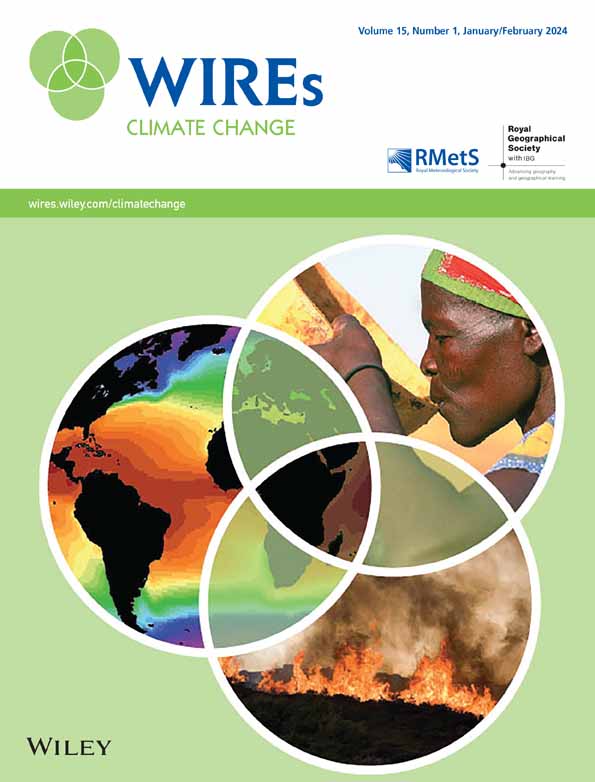死亡率管理与气候行动:恐怖管理理论方法在跨学科环境研究中的回顾与借鉴
IF 10.3
1区 环境科学与生态学
Q1 ENVIRONMENTAL STUDIES
引用次数: 10
摘要
全球气候变化意识正在增强,但传递信息的努力可能引发不良行为,包括否认、怀疑和增加资源消耗。因此,如果我们要促进、支持和维持亲环境行为,就必须更全面地调查社会心理对气候信息和信息的反应。然而,跨学科环境研究设计通常缺乏对这些反应的考虑。特别相关的是社会心理学的恐惧管理理论(TMT)的研究表明,人们抑制死亡显著性(MS)或意识的努力显著影响他们的态度、信仰和行为。关于MS对气候变化信念的影响的研究正在取得进展,但迄今为止,还没有对文献进行系统的范围审查。在此,我们提供这样的回顾。我们建议将TMT的见解和方法更好地整合到研究设计中,以指导气候沟通,并产生解决社会气候问题所需的全面文化和行为变化。我们为跨学科研究人员引入了一个方法框架,将TMT纳入他们的研究设计中,并帮助从业者预测他们的死亡率信息如何引发无意的社会心理反应,从而降低气候传播策略。本文章由计算机程序翻译,如有差异,请以英文原文为准。
Mortality management and climate action: A review and reference for using Terror Management Theory methods in interdisciplinary environmental research
Global climate change awareness is increasing, but efforts to convey information can trigger undesirable behaviors, including denial, skepticism, and increased resource consumption. It is therefore essential to more fully investigate social–psychological responses to climate information and messaging if we are to prompt, support, and sustain pro‐environmental behaviors. Yet consideration of these responses is typically absent from interdisciplinary environmental study designs. Of specific relevance is research using social psychology's Terror Management Theory (TMT) showing that people's efforts to repress mortality salience (MS) or awareness significantly influence their attitudes, beliefs, and behaviors. Research on MS's influence on climate change beliefs is progressing but, to date, a systematic scoping review of the literature has been unavailable. Here, we provide such a review. We propose that TMT insights and methods should be better integrated into research designs to guide climate communications and to generate the comprehensive cultural and behavioral changes needed to address societies' climate problems. We introduce a methodological framework for interdisciplinary researchers to incorporate TMT into their research designs and to help practitioners anticipate how their mortality‐laden messaging could trigger unintentional social‐psychological responses that degrade climate communication strategies.
求助全文
通过发布文献求助,成功后即可免费获取论文全文。
去求助
来源期刊

Wiley Interdisciplinary Reviews: Climate Change
METEOROLOGY & ATMOSPHERIC SCIENCES-
CiteScore
20.00
自引率
2.20%
发文量
58
审稿时长
>12 weeks
期刊介绍:
WIREs Climate Change serves as a distinctive platform for delving into current and emerging knowledge across various disciplines contributing to the understanding of climate change. This includes environmental history, humanities, physical and life sciences, social sciences, engineering, and economics. Developed in association with the Royal Meteorological Society and the Royal Geographical Society (with IBG) in the UK, this publication acts as an encyclopedic reference for climate change scholarship and research, offering a forum to explore diverse perspectives on how climate change is comprehended, analyzed, and contested globally.
 求助内容:
求助内容: 应助结果提醒方式:
应助结果提醒方式:


